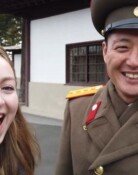Moon’s inter-Korean leadership role should comply with international collaboration
Moon’s inter-Korean leadership role should comply with international collaboration
Posted July. 04, 2017 07:36,
Updated July. 04, 2017 07:46
Meeting with former U.S. President Barack Obama on Monday, President Moon Jae-in said, “This is probably the last chance for North Korea to open the window for dialogue.” When he met with International Olympic Committee Chairman Thomas Bach, the president asked him for cooperation to seek North Korea’s participation in the 2018 Winter Olympics in PyeongChang in the South, and Bach replied that Moon’s statement reminded him of the late former President Kim Dae-jung’s 1998 remarks that “As long as North Korean agrees, we agree on everything.” After the South Korea-U.S. summit ended, President Moon is apparently issuing a flurry of messages to seek inter-Korean dialogue and exchange.
The president will depart on Wednesday to take part in the G20 Summit in Germany, where he plans to announce a blueprint for his own North Korea policy. Just like former President Kim’s “Berlin Declaration” in 2000, President Moon is expected to announce his plan on North Korea to bring Pyongyang to the negotiating table. Judging that President Trump’s support of “South Korea’s leadership role” and “President Moon’s desire to resume inter-Korean dialogue” was affirmed in the Seoul-Washington joint statement, President Moon is seen as starting his policy of engaging the North in earnest.
However, President Trump reiterated that sanctions against North Korea should be strengthened in his phone call with Japanese Prime Minister Abe Shinzo on Monday. To this end, the leaders of the U.S. and Japan have agreed to demand China to play a bigger role in pressuring Pyongyang. The fact the U.S. designated China’s Bank of Dandong as an organization that is feared to engage in money laundering right before the Seoul-Washington summit, and the fact the South Korea-U.S. joint statement provides for implementation of new measures to impose the heaviest pressure on the North also symbolizes Washington’s stance that now is the time for parties make all-out efforts to pressure Pyongyang.
The upcoming G20 summit will be a venue where the international community will reaffirm the mechanism of collaboration to pressure the North. Notably, Moon is also scheduled to hold a three-way summit between South Korea, the U.S. and Japan including Prime Minister Abe who is voicing demand for sanctions against the North. Chances are high that President Moon will also meet with Chinese President Xi Jinping who is in thorny relations with him over Beijing’s retaliation for the deployment of the Terminal High Altitude Area Defense missile system in the South. Moon is apparently not in a phase wherein he can afford to push for North Korea policy centered on dialogue at a multilateral summit, a diplomatic stage that is much more complex than a bilateral summit.
President Moon said, “South Korea will take the driver’s seat to take the lead in inter-Korean relations.” However, the leadership in inter-Korean relations cannot be displayed separately from collaboration against the North by the neighboring countries including the U.S., China and Japan, and further by the international community. Currently, the international community is calling for a decisive and unified message focused on maximum pressure and sanctions to counter the North’s nuclear and missile threats. It is too premature for Seoul to deviate from the framework of international collaboration against Pyongyang by conveniently interpreting the outcome of the Seoul-Washington summit to argue that the South is prepared to take the driver’s seat of improving inter-Korean ties.







